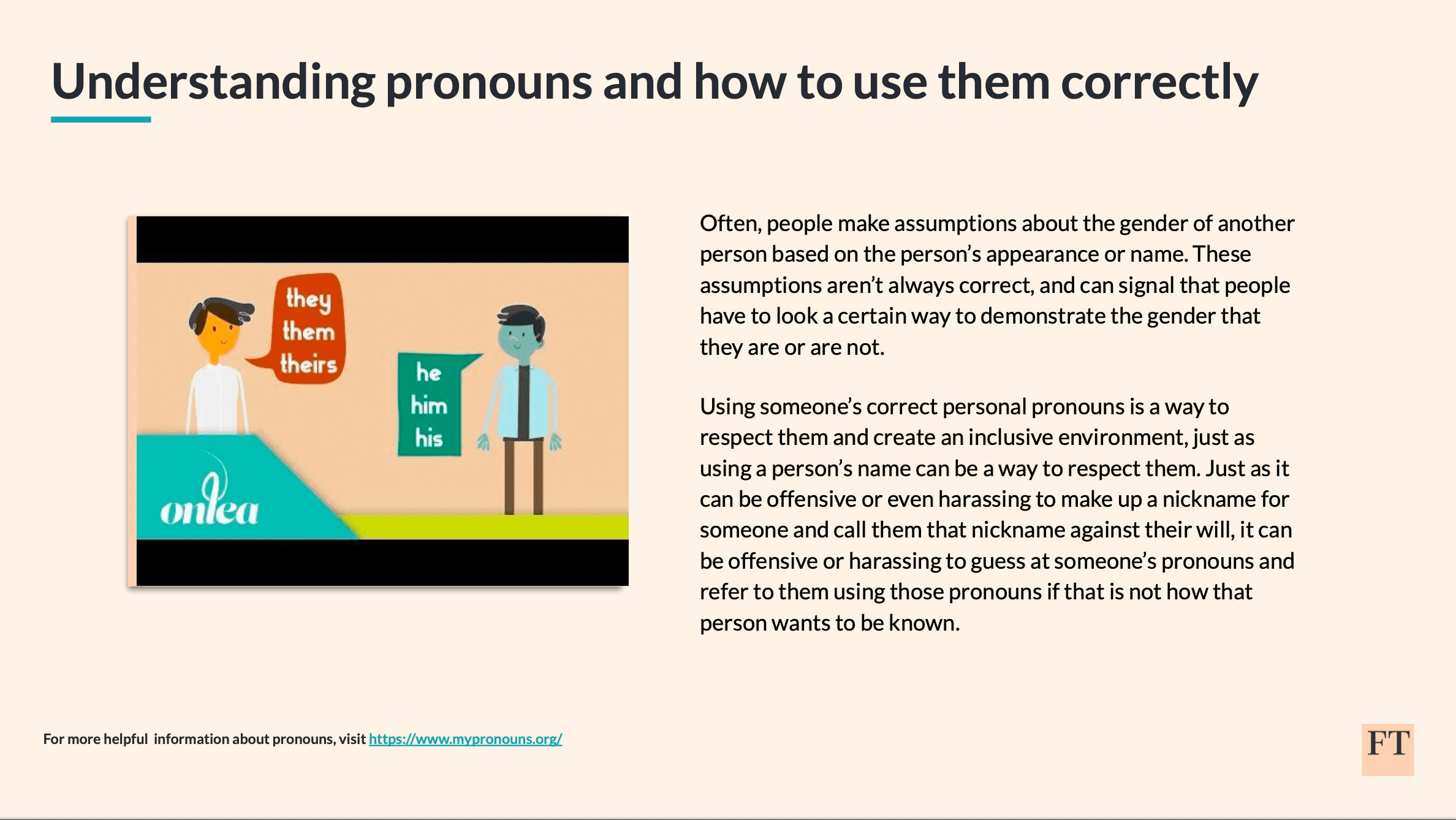
Photo: Financial Times, CC BY 2.0 , via Wikimedia Commons
A whistleblower has revealed the disturbing diversity, equity, and inclusion (DEI) policies of the Financial Times this week, including manipulating coverage of transgender issues and minimising the use of such words as mother and father. Revelations of this “cult-like preaching” will damage the reputation of one of the most trusted sources in financial journalism.
The exposé emerged from the work of social commentator James Esses, who obtained a copy of the paper’s internal diversity policies which instruct staff to partake in so-called privilege walks, where participants are asked to “take steps forwards or backwards depending on perceived privilege status.”
Staff at the traditionally pro-business paper are also informed of the need to challenge perceived ‘gender binaries’ as well as to reassure black women in particular of their worth to the organisation, with additional warnings that a failure to acknowledge structural racism in their journalism could even contribute to “early deaths” in black people.
Also revealed is the paper’s hiring process, where applicants are given the option of identifying as ‘genderqueer,’ ‘asexual,’ or even ‘agender’ among the standard male and female options.
According to the @FT, their staff are “adversaries” if they are not pro-active allies, willing to “interrupt and educate”.
— James Esses (@JamesEsses) March 20, 2024
This calls into question the impartiality and integrity of the paper. https://t.co/DdY6AdsRZ7 pic.twitter.com/gOgpptov90
The publication of the initial leak has prompted a wave of disgruntled FT writers’ complaints about the organisation’s onerous diversity policies, with many pointing out the paper’s donations to transgender advocacy groups as well as hosting ‘drag bingo parties.’

Managers at the FT are also fixated on the use of pronouns, asking staff to provide them before each meeting, as well as providing educational links to inform journalists on those who use ‘ze/zir, per/pers, ey/em, and xe/xem’ pronouns.
This stuff is being pushed from the very top. Here is the @FT’s Chief People Officer celebrating it. https://t.co/DdY6AdsRZ7 pic.twitter.com/o2qfqqZPfo
— James Esses (@JamesEsses) March 20, 2024
Perhaps most disturbingly, it is suggested that these internal policies have influenced the FT’s treatment of transgender issues. Esses suggests that it contributed to a lack of coverage of the NHS’s suspension of puberty blockers for children and a critical slant shown towards Rishi Sunak’s comments on “women with penises.”
Employing 2,300 staff worldwide, according to its website, the FT has been operational since 1888 and is known for its pro-business stances, editorially endorsing Great Britain’s Conservative Party for most of the past decade.
This is not the first time an ostensible paper of record has been raked over the coals for internal diversity policies. The New York Times was ridiculed in 2022 after airing similar policies designed to reorient its coverage and increase its recruitment of black and ethnic minority staff.
